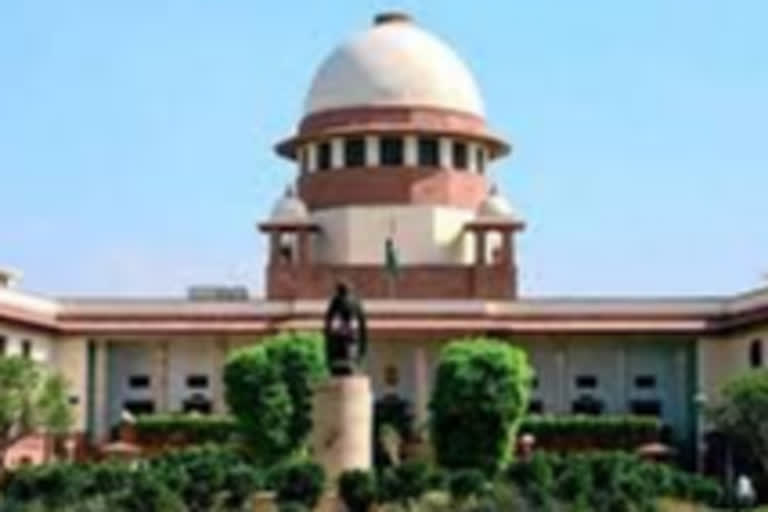New Delhi: The Supreme Court on Tuesday sought the Centre's response on a plea seeking directions for the formulation of laws to regulate minors' access to social media, a mechanism to verify profiles and criminalise morphing and revenge porn.
A bench headed by Chief Justice S A Bobde agreed to hear the matter and issued notices to the Centre and others on the plea seeking a direction to the Union Law Ministry to formulate a gender-neutral legislation or to amend existing laws to expressly criminalise revenge porn, morphing and impersonation.
Issue notice, said the bench, also comprising Justices A S Bopanna and V Ramasubramanian.
The plea, filed by two law students Skand Bajpai and Abhyudaya Mishra, has sought a direction to the Centre to institute a proper investigation and legal proceedings against users of social media profiles who indulge in advertisement, sale and procurement of illicit content like rape videos and private graphic information, and also to ensure their deletion.
It said the government should formulate an efficient mechanism to deal with such content in future.
The plea has said that the Law Ministry should be directed to formulate appropriate laws or amend the existing laws to increase the accountability of intermediaries towards Indian jurisdictions, encourage mandatory reporting of child sexual abuse materials and also to make them liable with regard to the content featured on their platforms.
There is no law governing age eligibility for using social media in India. The United States of America has legislation on this subject matter titled as Children's Online Privacy Protection Act', wherein the consent of parents or guardians of children below the age of 13 years is taken into consideration while processing data belonging to minors, however, this also does not create any age-related barrier in access to social media or internet, it said.
Also Read: Media commenting on sub judice matters is causing damage: Attorney General tells SC
Referring to a report published by a Delhi based NGO in April this year, the plea said it has stated that there has been a surge in the search for key words like child porn'.
The plea said availability of child sexual abuse materials, rape videos and private graphic on social media violates the right to control the dissemination of personal information by affected individuals, infringing their right to privacy.
